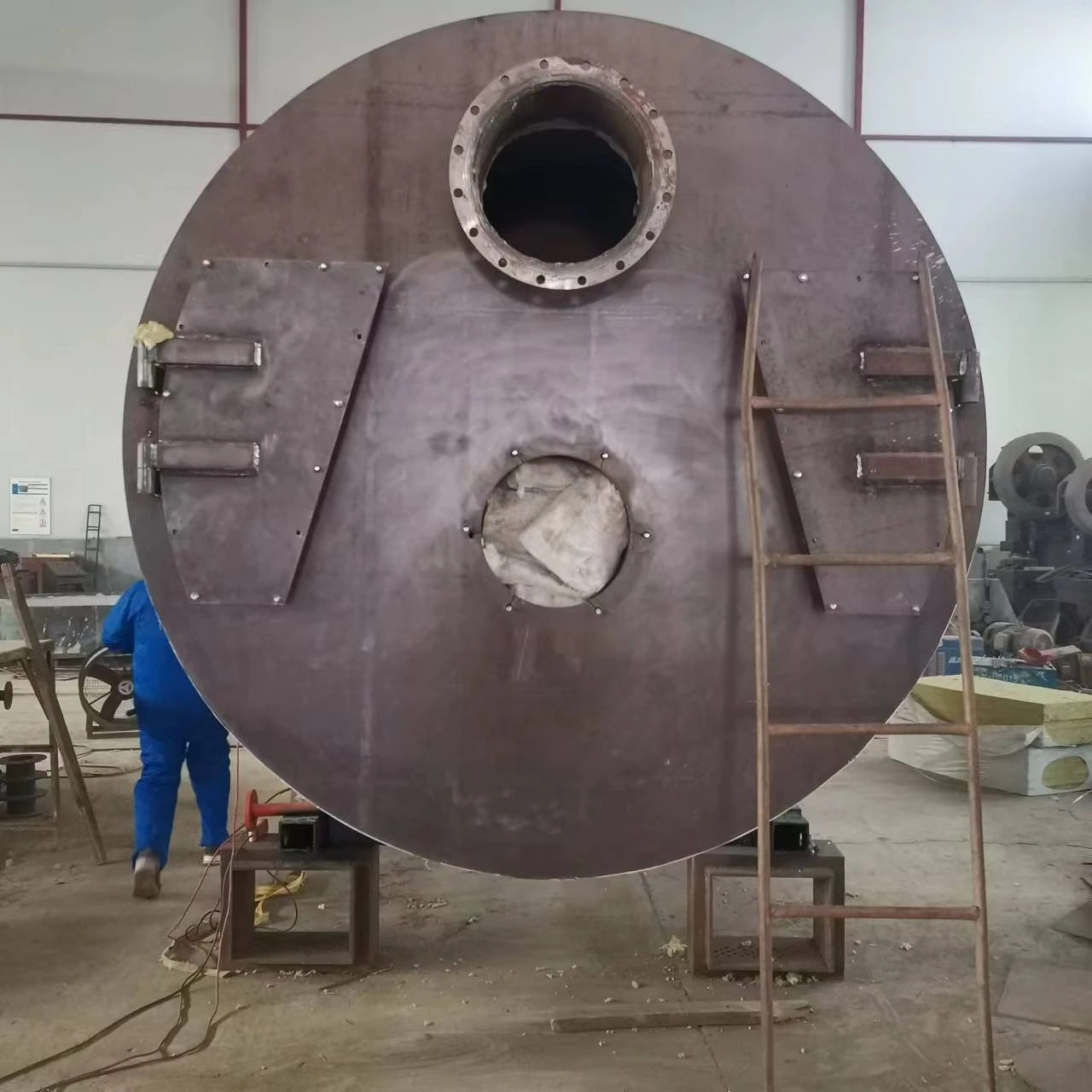
Dec . 14, 2024 09:25 Back to list
Understanding the Operation of Thermal Oil Boilers for Industrial Heating Applications
The Working Principle of Thermal Oil Boilers
Thermal oil boilers, also known as thermal fluid heaters, are widely used in various industries for heating purposes. Unlike traditional steam boilers, which operate using water, thermal oil boilers use organic thermal oils as heat transfer fluids. This unique design allows for high-temperature heating with low pressure, making them ideal for processes that require consistent and efficient heat transfer. In this article, we will explore the working principle of thermal oil boilers, including their construction, operation, and applications.
Construction and Components
A typical thermal oil boiler consists of several key components the boiler shell, thermal oil heat exchanger, burner, circulation pump, and control system. The boiler shell, made of durable steel, surrounds the heat exchanger where the thermal oil circulates. The heat exchanger transfers heat from the combustion process to the thermal oil, raising its temperature.
The burner is responsible for generating heat through the combustion of fuels such as natural gas, oil, or biomass. The choice of fuel often depends on the specific application and operational requirements. The circulation pump is crucial for maintaining the flow of thermal oil through the heating system, ensuring efficient heat transfer. Finally, the control system monitors and regulates the temperature and pressure within the boiler to maintain optimal performance and safety.
Operating Principle
The operation of a thermal oil boiler begins with the ignition of the burner. Fueled by natural gas, oil, or another combustible material, the burner generates a flame that heats the surrounding air and surfaces. As the thermal oil circulates through the heat exchanger, it absorbs this heat, increasing its temperature to levels often exceeding 300°C (572°F).
One of the significant advantages of thermal oil boilers is their ability to operate at high temperatures without subjecting the system to the high pressure associated with steam boilers. While steam boilers require high-pressure conditions to achieve elevated temperatures, thermal oil can transfer heat effectively and safely at atmospheric pressures. Consequently, this reduces the risk of explosions and other pressure-related hazards.
The heated thermal oil is circulated through the system to the required heat transfer points, such as reactors, dryers, or heat exchangers in various industrial processes. As the thermal oil releases its heat, it returns to the boiler to be re-heated, completing the cycle. The continuous circulation of the thermal oil ensures a consistent temperature is maintained across the system, which is crucial for many industrial applications.
thermal oil boiler working principle

Efficiency and Control
Thermal oil boilers are known for their energy efficiency. The design allows for quick heating and cooling, resulting in lower operational costs. Additionally, the heat transfer properties of thermal oil enable better temperature control, reducing energy wastage. The control system plays a vital role in optimizing performance, automatically adjusting the burner operation based on the demand for heat, thereby ensuring that the system runs at peak efficiency.
Modern thermal oil boilers are equipped with advanced control technologies, including digital monitoring and automation. These systems enable operators to maintain precise temperature settings, monitor performance metrics, and triggered alarms for any operational irregularities, ensuring safety and efficiency.
Applications
The versatility of thermal oil boilers makes them applicable in various industries. They are commonly used in chemical processing, food production, textiles, plastics, and oil refining, among others. For instance, in the food industry, thermal oil is used for processes like frying and heat treatment, where precise temperature control is critical. In chemical processing, maintaining stable temperatures is essential for reactions that need specific thermal conditions.
Moreover, thermal oil boilers can be integrated with renewable energy sources, such as solar thermal systems, to enhance their sustainability. This adaptability not only reduces carbon footprints but also complies with increasingly stringent environmental regulations across the globe.
Conclusion
In summary, thermal oil boilers provide an efficient and safe solution for industrial heating needs. Their unique operating principles, combined with modern technology, enable them to handle high-temperature applications without the associated risks of high-pressure systems. As industries continue to seek efficient and economical heating solutions, the importance and relevance of thermal oil boilers are only set to increase in the coming years. With their wide range of applications and compatibility with various fuels, thermal oil boilers remain a significant asset in the industrial landscape.
-
High-Efficiency Commercial Oil Fired Steam Boiler for Industry
NewsJul.30,2025
-
High-Efficiency Biomass Fired Thermal Oil Boiler Solutions
NewsJul.30,2025
-
High Efficiency Gas Fired Thermal Oil Boiler for Industrial Heating
NewsJul.29,2025
-
High-Efficiency Gas Fired Hot Water Boiler for Sale – Reliable & Affordable
NewsJul.29,2025
-
High Efficiency Biomass Fired Hot Water Boiler for Industrial and Commercial Use
NewsJul.29,2025
-
High-Efficiency Biomass Fired Hot Water Boiler for Industrial Use
NewsJul.28,2025
Related PRODUCTS






















